ESCWA is organizing a training workshop focused on changing mindsets in the public sector in Libya to promote innovation and institutional transformation. The workshop is aimed at identifying new competencies and strategies for implementing the Sustainable Development Goals (SDGs) and at enhancing the Libyan Government's capacity for sound policymaking. The training uses a readiness assessment to identify challenges and capacity needs, promotes new mindsets in public institutions, and assists participants in developing action plans related to policy coherence and changing mindsets.
Changing mindsets in public administration
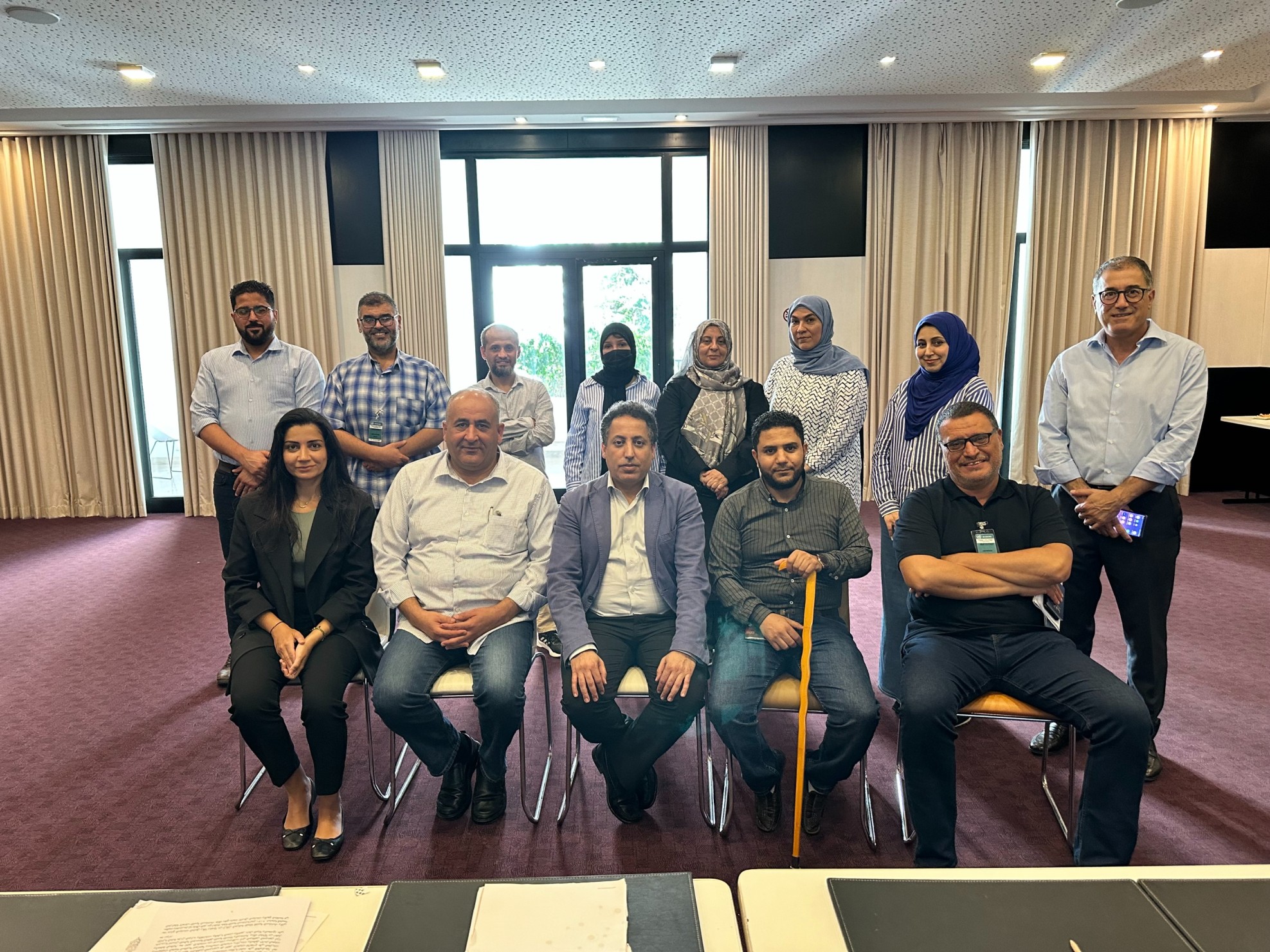
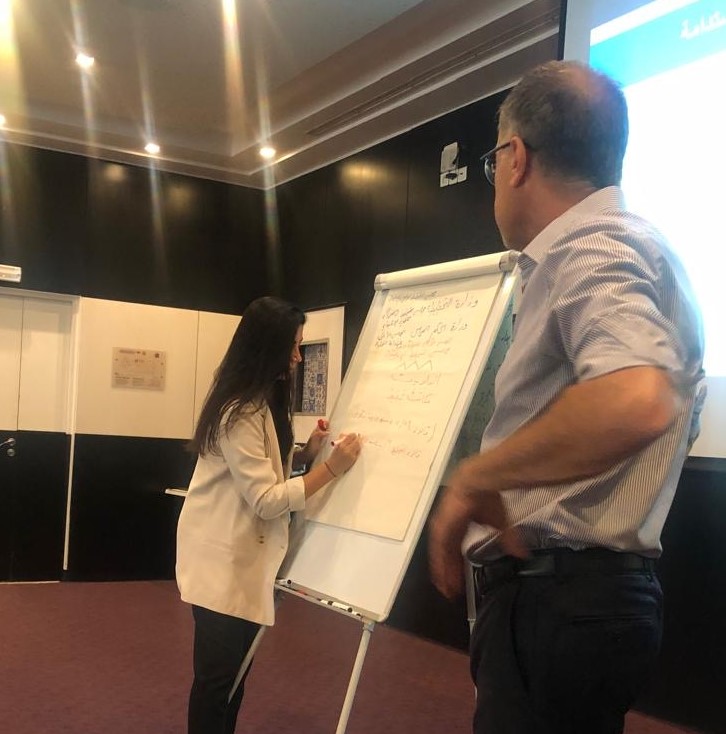
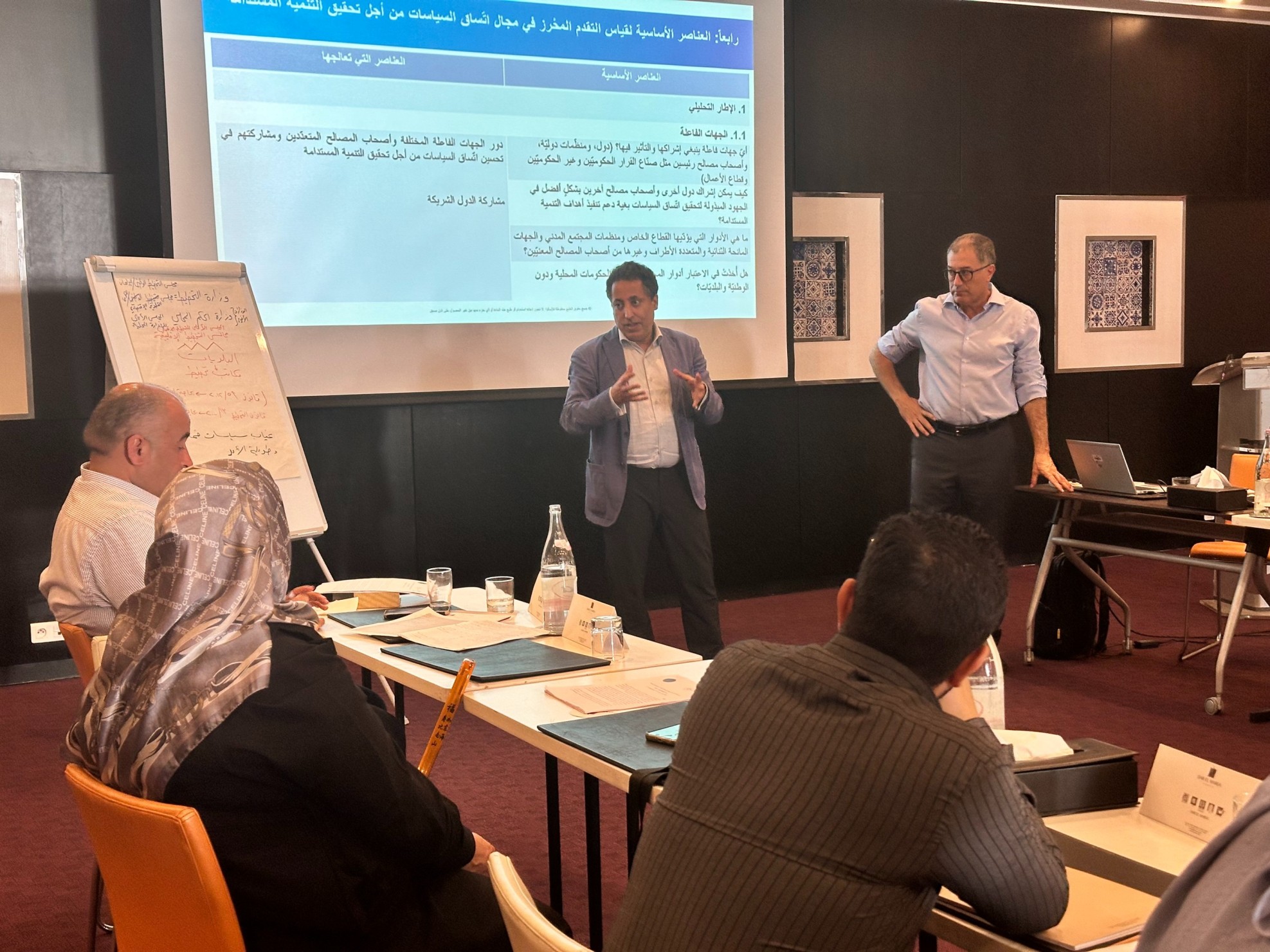
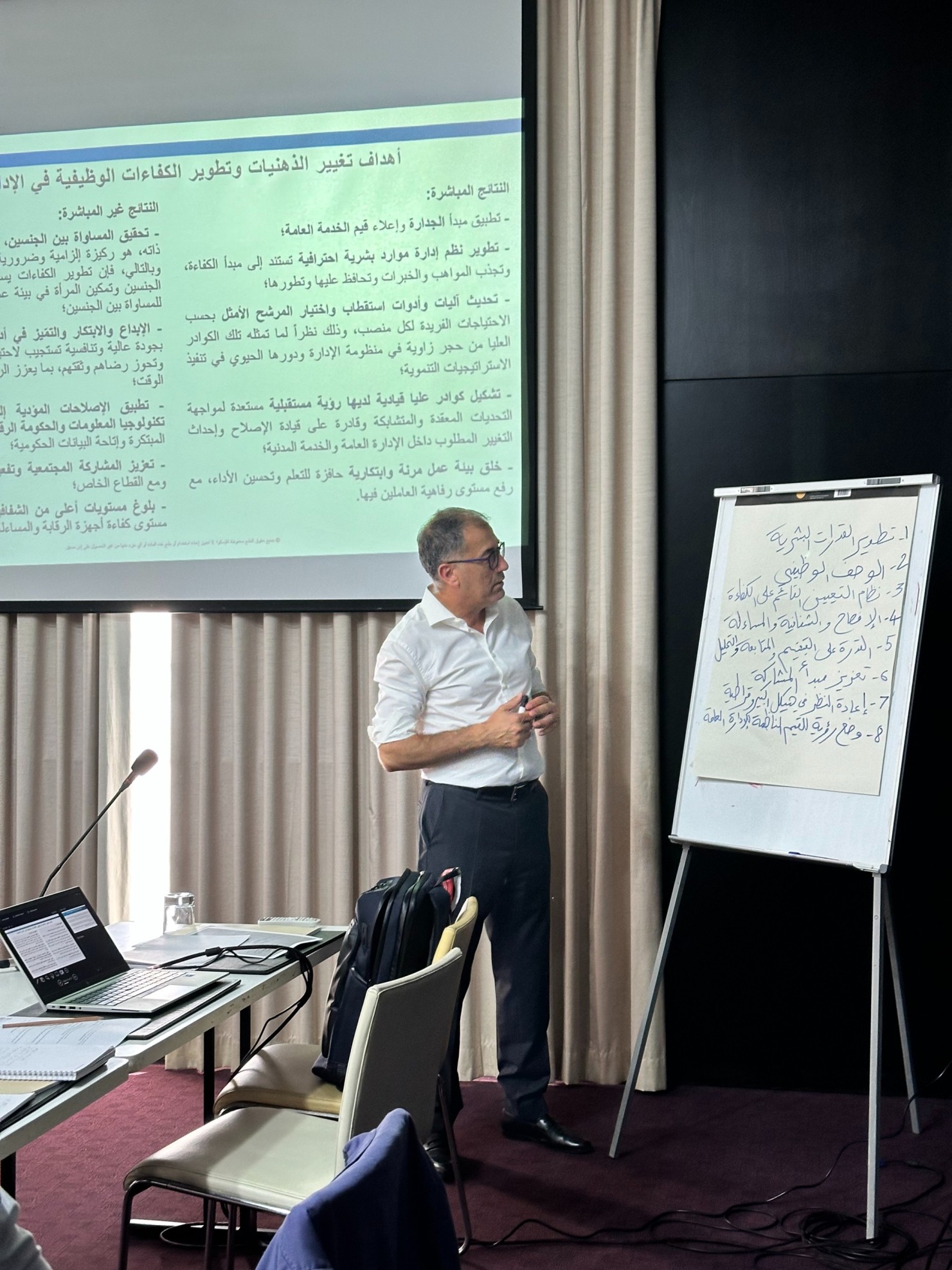
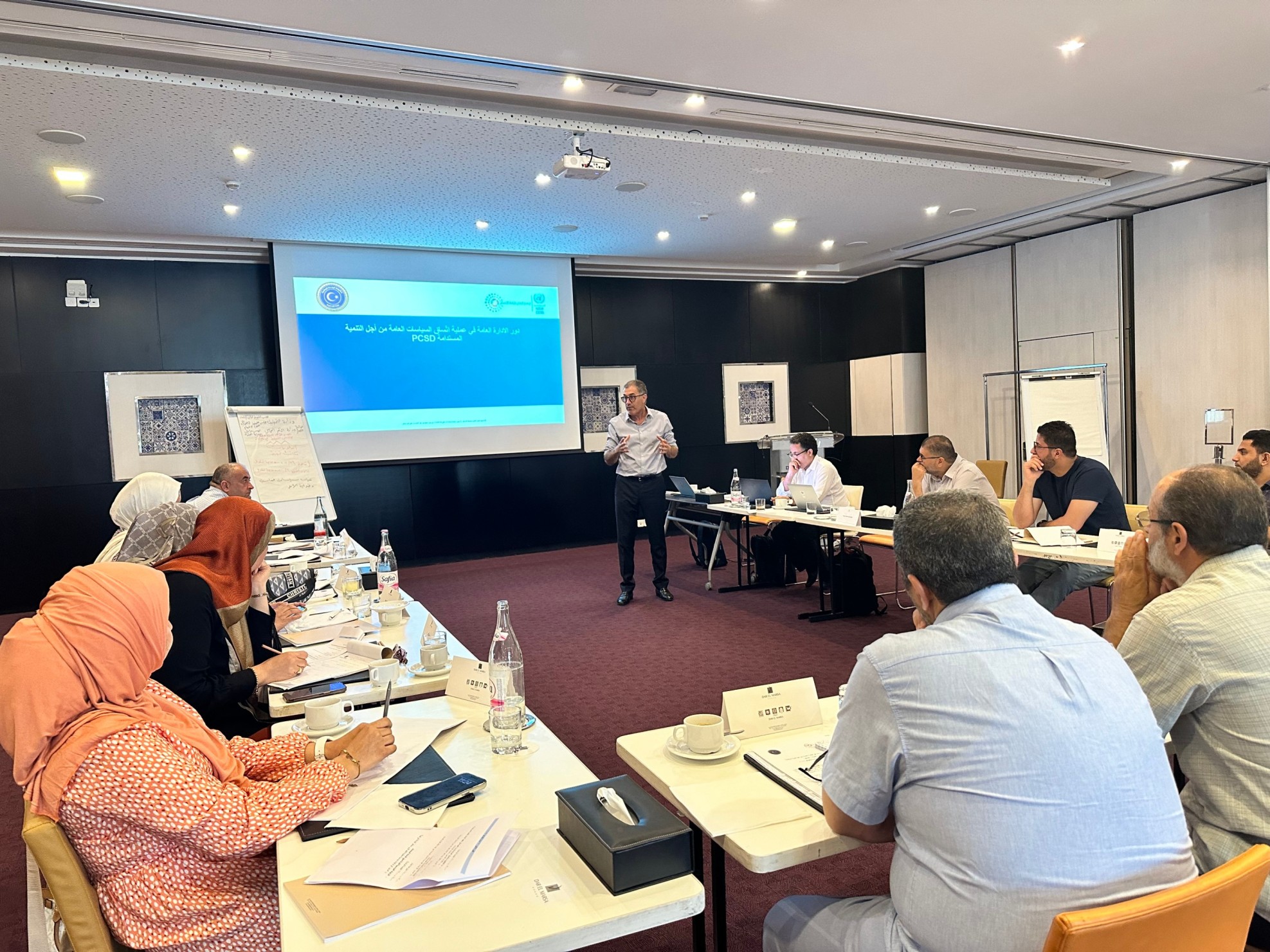
Outcome document
In collaboration with the Libyan Ministry of Planning, ESCWA organized a workshop in Tunis from June 11-13, 2024. Around 14 civil servants from the Ministry participated in the event, which aimed at changing mindsets and enhancing policy coherence in public administration to aid in crisis recovery and sustainable development. The workshop initially highlighted the significance of changing mindsets at all levels of public policy development and implementation within ministries, departments, and public sector institutions. It involved a detailed examination of the key challenges posed by established mindsets within Libya's public administration, particularly those that impede the effectiveness of the Ministry of Planning. Strategies for changing these mindsets, including preconceptions, behaviors, and attitudes, were presented and discussed. This change was addressed at both the leadership and individual levels, emphasizing the need for openness to new approaches and methodologies to tackle challenges and ensure institutional efficiency. Several proposals were developed to gradually change mindsets within Libya’s public administration, aiming to foster open, competent, and responsible attitudes. These proposals are intended to enhance the capacity of public servants to fulfill their administrative duties effectively and provide quality services to citizens.
In the second part of the workshop, the focus shifted to policy coherence as a crucial element of effective governance for sustainable development, an area that has gained significant attention since the adoption of the 2030 Agenda for Sustainable Development. The discussion began with an overview of the interconnected nature of the Sustainable Development Goals (SDGs), particularly SDGs 16 and 17, and the complex interactions—both synergies and trade-offs—between different policy areas. Participants then revisited a report they had developed during a previous ESCWA workshop titled "Fragility Risks in Libya: Movements, Impacts, Solutions." This report served as a case study to examine policy coherence between various ministries and public administrations in Libya. Initially, participants analyzed the report, focusing on coherence within each sector—economic, social, environmental, and institutional. In the next phase, through practical exercises and simulations reflecting real-world scenarios, they worked to integrate these sectors cohesively. This included defining the conditions and requirements necessary to achieve policy consistency within the current Libyan context.
Initiatives: Governance and institution building